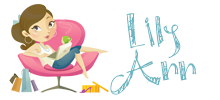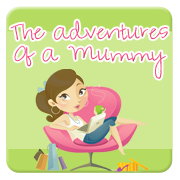If you want to talk about safety, it all begins from your home and you. By providing a safe environment is an important part of caring for your new baby.
By creating an environment conducive to learning and safety. Take a walk through your house and garden today with the view to finding possible dangers and then practice child safety at home.
These are some tips that can help to keep your baby safe and secure :
* Take your baby home from hospital safely in an capsule or other approved child restraint for newborns that faces the back of the car.
* Provide a safe environment at home.
* Provide a safe environment when you are out.
* Provide a safe environment where your baby sleeps – this includes SIDS prevention.
Travel with your baby in a child restraint
Use an approved convertible child seat or capsule if you transport your baby by car. By law, all passengers must be restrained at all times when travelling in a car in Australia. Your local council or RACV organisation can advise you on the correct fitting of the restraint. Make sure your baby is adequately restrained while in the child seat or capsule (follow the manufacturer’s instructions). Never leave your baby unattended in the car – not even for two minutes.
Be aware of your baby’s comfort
The air circulation in some capsules is not always ideal – and babies may overheat. Be particularly careful in warm weather, or when your baby will be in the capsule for a long period of time. On a hot day, your baby may just need a light singlet or nightdress, and a light blanket. Check the baby regularly – you can feel the temperature of their body just by touching them: for example, on the tummy.
Provide a safe environment at home
Newborn babies have very little protection against infection, so it is important that you provide a clean hygienic environment. One of the most important things you can do is to make sure that anyone who handles your baby – including you – have washed their hands before touching the baby. People who have contagious infections – for example, colds or flu, or ‘cold sores’ (herpes simplex) – should not come in contact with your baby. Cold sores can be particularly dangerous to a newborn baby.
General safety tips at home
Make sure your baby is safe at all times. You should:
* Supervise young children near the baby.
* Keep animals away from the baby.
* Avoid hot drinks from coming into contact with your baby.
* Make sure that any equipment that comes directly in contact with the baby is clean and, if it is likely to go into their mouths, it must be sterilised (free from germs).
* Make sure that when you change your baby you put them down in a safe place – for example, use a change table with a little raised edge to prevent the baby rolling off – but never leave them alone on the change table.
Make bath time a safe time
When you give your baby (or child) a bath:
* Always supervise your child in the bath. The carer should always be within arm’s reach of the child. Anything less than constant supervision, within sight is not enough.
* Do not use a baby support to prop up a baby in the bath
* Never leave an older child to supervise a younger child in the bath.
* Take your child with you if your telephone or doorbell rings while you are supervising your child in the bath.
* Empty the bath immediately after use.
* Always keep the doors to the bathroom and laundry securely closed.
Provide a safe sleeping environment
Many parents worry about sudden infant death syndrome (SIDS). Recent research has shown that there are some simple things you can do to reduce the risk of SIDS:
* Put the baby on their back when you put them to sleep.
* Don’t have fluffy toys, ‘bumpers’ or doona covers in the cot or bassinette – they can cause babies to overheat or suffocate.
* If the cot is large, make up the bottom of the cot with blankets and sheets, like you would a normal bed, and place the baby with their feet at the bottom of the cot.
* Keep your baby's head uncovered while they sleep.
* Don’t let anyone smoke in the house or around your baby.
Keep your baby safe when you’re out
Make sure you use a baby stroller or pram correctly, don’t hang shopping bags from the handles as it could cause the stroller to tip over. Make sure your read the manufacturers instructions and use the safety features. Always put the harness on your baby, even for short trips.
Remember to protect your baby from the sun and wind. A simple cloth thrown over the stroller may be enough, but it needs to be very light otherwise you could trap heat inside the stroller. Sunshades and storm covers can be bought from baby supply stores.
By creating an environment conducive to learning and safety. Take a walk through your house and garden today with the view to finding possible dangers and then practice child safety at home.
These are some tips that can help to keep your baby safe and secure :
* Take your baby home from hospital safely in an capsule or other approved child restraint for newborns that faces the back of the car.
* Provide a safe environment at home.
* Provide a safe environment when you are out.
* Provide a safe environment where your baby sleeps – this includes SIDS prevention.
Travel with your baby in a child restraint
Use an approved convertible child seat or capsule if you transport your baby by car. By law, all passengers must be restrained at all times when travelling in a car in Australia. Your local council or RACV organisation can advise you on the correct fitting of the restraint. Make sure your baby is adequately restrained while in the child seat or capsule (follow the manufacturer’s instructions). Never leave your baby unattended in the car – not even for two minutes.
Be aware of your baby’s comfort
The air circulation in some capsules is not always ideal – and babies may overheat. Be particularly careful in warm weather, or when your baby will be in the capsule for a long period of time. On a hot day, your baby may just need a light singlet or nightdress, and a light blanket. Check the baby regularly – you can feel the temperature of their body just by touching them: for example, on the tummy.
Provide a safe environment at home
Newborn babies have very little protection against infection, so it is important that you provide a clean hygienic environment. One of the most important things you can do is to make sure that anyone who handles your baby – including you – have washed their hands before touching the baby. People who have contagious infections – for example, colds or flu, or ‘cold sores’ (herpes simplex) – should not come in contact with your baby. Cold sores can be particularly dangerous to a newborn baby.
General safety tips at home
Make sure your baby is safe at all times. You should:
* Supervise young children near the baby.
* Keep animals away from the baby.
* Avoid hot drinks from coming into contact with your baby.
* Make sure that any equipment that comes directly in contact with the baby is clean and, if it is likely to go into their mouths, it must be sterilised (free from germs).
* Make sure that when you change your baby you put them down in a safe place – for example, use a change table with a little raised edge to prevent the baby rolling off – but never leave them alone on the change table.
Make bath time a safe time
When you give your baby (or child) a bath:
* Always supervise your child in the bath. The carer should always be within arm’s reach of the child. Anything less than constant supervision, within sight is not enough.
* Do not use a baby support to prop up a baby in the bath
* Never leave an older child to supervise a younger child in the bath.
* Take your child with you if your telephone or doorbell rings while you are supervising your child in the bath.
* Empty the bath immediately after use.
* Always keep the doors to the bathroom and laundry securely closed.
Provide a safe sleeping environment
Many parents worry about sudden infant death syndrome (SIDS). Recent research has shown that there are some simple things you can do to reduce the risk of SIDS:
* Put the baby on their back when you put them to sleep.
* Don’t have fluffy toys, ‘bumpers’ or doona covers in the cot or bassinette – they can cause babies to overheat or suffocate.
* If the cot is large, make up the bottom of the cot with blankets and sheets, like you would a normal bed, and place the baby with their feet at the bottom of the cot.
* Keep your baby's head uncovered while they sleep.
* Don’t let anyone smoke in the house or around your baby.
Keep your baby safe when you’re out
Make sure you use a baby stroller or pram correctly, don’t hang shopping bags from the handles as it could cause the stroller to tip over. Make sure your read the manufacturers instructions and use the safety features. Always put the harness on your baby, even for short trips.
Remember to protect your baby from the sun and wind. A simple cloth thrown over the stroller may be enough, but it needs to be very light otherwise you could trap heat inside the stroller. Sunshades and storm covers can be bought from baby supply stores.




No comments:
Post a Comment